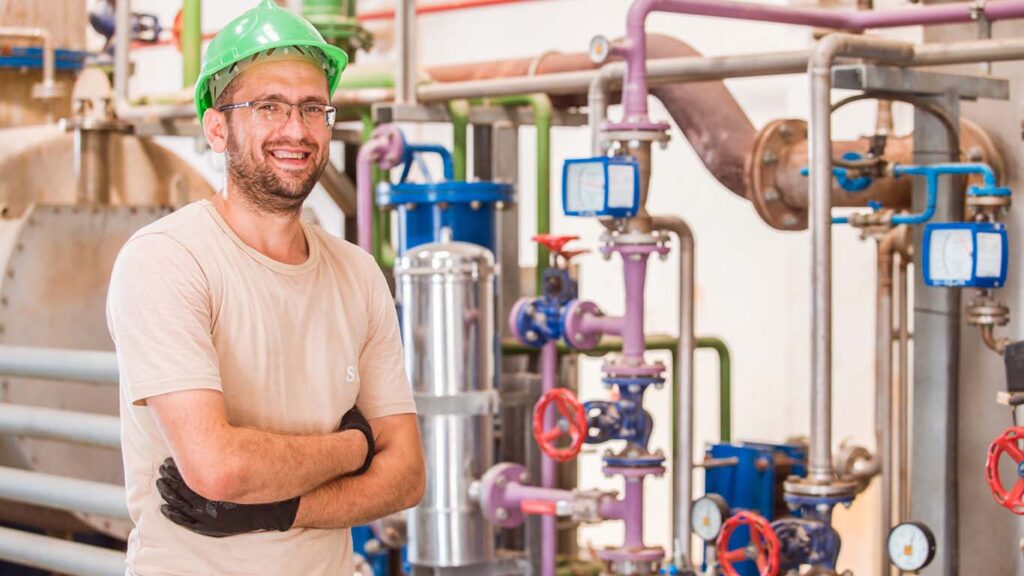Industrial cooling systems are used to maintain temperature in factories, data centers, and power plants. There are heat generated by sensitive machinery at work. Overheating can damage components, lower efficiency, and lead to breakdowns, so cooling must be kept in mind.
Industrial cooling systems reduce excess heat and maintain machinery at safe operating temperatures. This enhances performance, increases equipment life, and avoids expensive downtime.
These industrial water cooling systems are essential to industries as varied as manufacturing, food processing and electronics. Let’s take a look at how these systems protect machinery, and why they’re so essential.
Maintaining Cooling And Avoiding Component Damage
Running machines generate heat. If the heat accumulates, it can cause serious damage. Extreme heat can soften materials, bend metal parts and melt electrical circuits. Cooling systems take away heat before it reaches dangerous levels.
Thermal stress is yet another issue. Changes in temperature make materials expand and contract. Over the course of time, this causes cracks and mechanical failures. Constant cooling stabilizes the temperature.
Heat can also make machines with sensitive electronics unresponsive. Overheating destroys circuit boards, sensors, and wiring. This is where industrial cooling systems come into play — protecting these components and keeping them up and running.
Improving Energy Efficiency And Cost Reduction
Industrial cooling systems serve a greater purpose than just preventing overheating. They also enhance energy efficiency. Short version: Machines can get overheated and consume more power.
It creates higher operational costs and energy wastage. An efficient cooling system ensures machines run at optimal temperatures, lowering energy consumption. Energy consumption is reduced with heat exchangers, cooling towers, and liquid cooling systems.
They efficiently remove heat from these spaces, lightening the load on air conditioning systems. The savings on electricity bills help factories and plants save money. Machines that run hot need to be serviced frequently, too.
Ensuring Quality And Safety Of Products
Multiple business segments depend on exact temperature control to deliver excellent results in their products. Food processing plants require stable cooling to prevent spoilage of their products.
Food items start to degrade because refrigeration is not provided. Healthcare facilities depend on cooling systems because they need to follow established health and safety regulations.
Drugs along with vaccines which need specific environmental conditions are part of pharmaceutical products since they have temperature sensitivities. Any minor temperature changes could result in the reduction of drug potency.
Electronics factories require cooling mechanisms as part of their manufacturing process. The manufacture of semiconductors requires predefined environmental cleanliness together with managed temperature levels.
Increase The Operational Period
So expensive machines are investments. Cooled equipment survival time extends company savings while diminishing production waste. The main purpose of cooling systems is to protect equipment from temperature-related breakdowns while managing mechanical strain.
Extreme heat forces lubricants present in machines to degrade. Friction between moving equipment parts develops due to this effect which damages all surfaces. Equipment breakdowns are postponed and lubricant protection is enabled through cooling systems which prevent overshoot conditions.
High heat levels cause the destruction of both rubber seals and plastic components together with insulation materials. The long-term effect causes leaks together with shorts and mechanical failures. Training systems decrease the rate of machine deterioration thus increasing their overall reliability.
Contributing To Environmental Sustainability
The environmental sustainability advances from industrial water cooling systems operate in dual purpose with their protective role for machinery. The demand for energy-efficient cooling technologies minimizes industrial carbon emissions. The use of less energy results in diminished greenhouse gas emissions.
New cooling technologies employ environmentally friendly refrigerants which create no harm to the environment. Environmental protection features as a significant advantage of the newly introduced cooling solutions versus their outdated predecessors.
Heat recovery systems help improve sustainability. Waste heat extraction through these systems allows further process operations. Saving both energy costs and operational expenses happens due to these optimal energy distribution strategies.
Conclusion
Industrial operations utilize chillers as their standard cooling equipment to manage sensitive equipment safety by stopping system heat overload. These mechanisms protect systems from excessive heat giving multiple benefits.
The proper cooling system enhances product quality at the same time it ensures both worker safety and equipment durability. Sustainable cooling technologies serve industries as a means to minimize their ecological impact.
The absence of effective cooling methods would lead to machine system failures which reduces productivity and causes costs to rise dramatically. Numerous businesses that operate machines should implement efficient cooling methods to run their operations freely while maintaining profitability.


